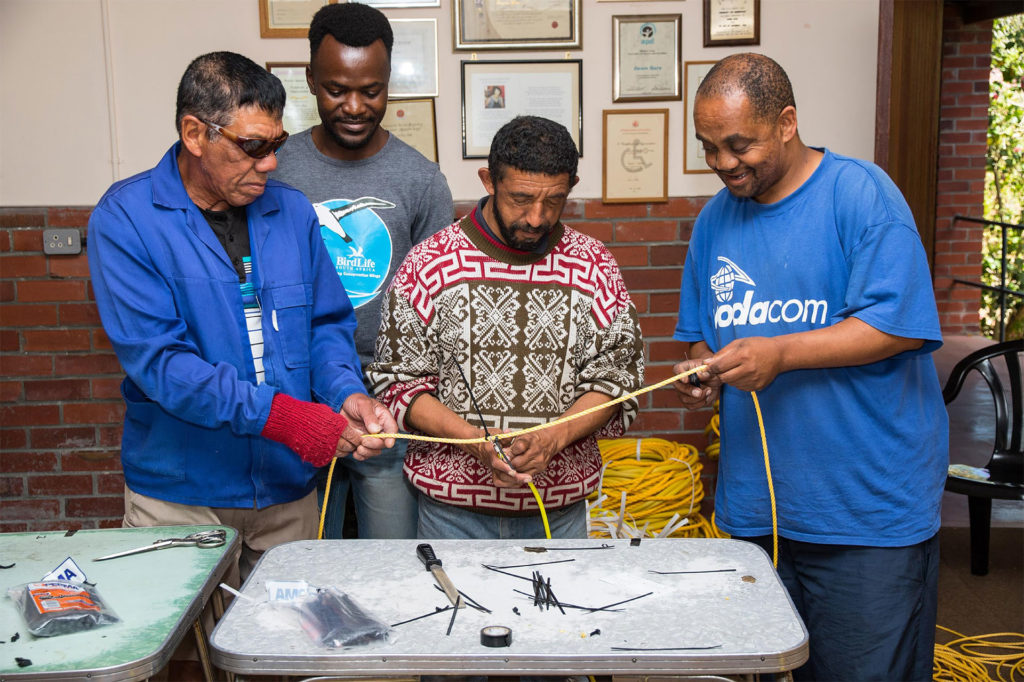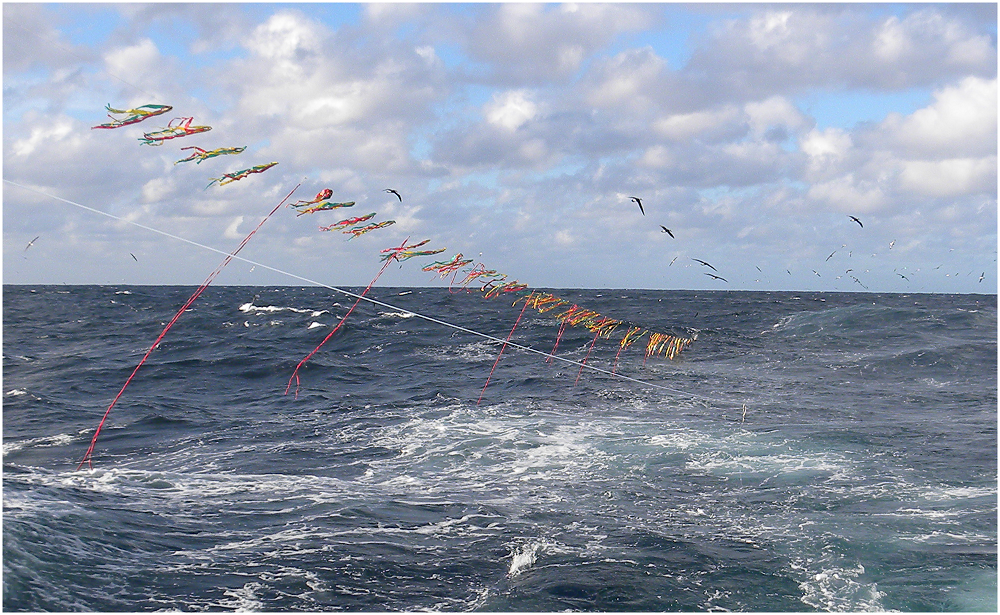
Three OVAPD workers construct a bird-scaring line as BirdLife South Africa's Reason Nyengera looks on; photograph from the Albatross Task Force
Reason Nyengera, Albatross Task Force Project Manager, BirdLife South Africa reports that over 1000 bird-scaring lines have been supplied by the ATF to vessels that fish within South African waters.
He writes: “Each year thousands of seabirds are accidentally killed while foraging behind fishing vessels in the world’s oceans. One of the most efficient solutions to reduce seabird bycatch is to use a device known as a bird-scaring line (BSL), or tori line, to deter birds from entering the danger zone behind fishing vessels. One of the cornerstones of our work is to provide cost-effective, efficient and science-based seabird bycatch mitigation measures to the South African fishing industry, and ensuring that all vessels are equipped with BSLs is an integral part of this mission. A collaborative BSL-manufacturing project has been initiated between BirdLife South Africa and the Ocean View Association for Persons with Disabilities (OVAPD), a registered non-profit institution that provides people with disabilities from in and around the local community with a place where they can interact, learn skills and make a small income.”
A bird-scaring line flutters above a longline; photograph by Domingo Jimenez
Funding to purchase raw materials for the manufacture of BSLs has been funded by Rand Merchant Bank over the last decade.
“Since the beginning of this collaborative project we have supplied more than 1000 BSLs, effectively equipping 60% of the [South African] vessels that interact with seabirds. The BSLs in South Africa have directly contributed to a 99% reduction in the deaths of albatrosses in the demersal hake trawl fishery and an 85% reduction in seabird mortality in one of our longline fisheries. Since its inception, the project has prevented the deaths of approximately 58 000 seabirds in the South African trawl fisheries alone. And 58 people with disabilities gain technical life skills, socio-economic welfare and upliftment every year through it.”
Read the original news story here and access earlier related posts to ACAP Latest News on the subject.
John Cooper, ACAP Information Officer, 25 March 2022

 English
English  Français
Français  Español
Español 